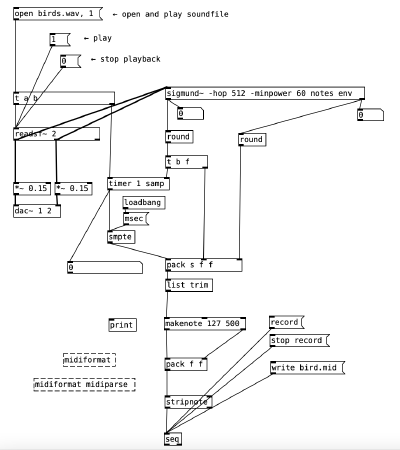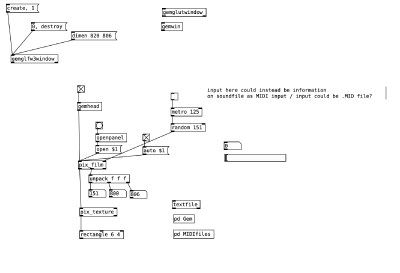| Line 7: | Line 7: | ||
# Create file in Aegisub ( simply with video is loaded into, save and close) | # Create file in Aegisub ( simply with video is loaded into, save and close) | ||
# Use .srt file of subtiles with 'findword' python script to generate a .xml file with information on timecodes of certain, selected word | # Use .srt file of subtiles with 'findword' python script to generate a .xml file with information on timecodes of certain, selected word | ||
## Open Mac terminal > change to 'findword' directory > command 'cd' and manually pull in find word folder into Terminal > ( easiest if both subtile file and video are in the 'findword' folder, otherwise full path must be given > use command | ## Open Mac terminal > change to 'findword' directory > command 'cd' and manually pull in find word folder into Terminal > ( easiest if both subtile file and video are in the 'findword' folder, otherwise full path must be given > use command <tt>python3 find_word.py [-h] [-i INPUTFILE] [-o OUTPUTFILE] [-w WORD] [-c] [-v]</tt> e.g. <tt>python3 find_word.py -i “Life.srt” -o “Life.xml” -w work -c -v</tt> | ||
# Insert generated .xml into full code of Aegisub file by opening the file via e.g. Visual Studio Code | # Insert generated .xml into full code of Aegisub file by opening the file via e.g. Visual Studio Code | ||
## Insert generated .xml; under playlist id=playlist0 | ## Insert generated .xml; under <tt>playlist id=playlist0</tt> replace entry <tt>producer="chain1"</tt> (*"chain1" needs to be adapted/named as such in the generated .xml file for successful insertion) | ||
# Open Aegisub in program to see edited video | # Open Aegisub in program to see edited video | ||
Revision as of 17:39, 22 November 2021
Videoediting with Subtitles
- Download video from Youtube (e.g. noTube converter)
- Download Youtube subtitles for same video (e.g. downsub converter)
- Create file in Aegisub ( simply with video is loaded into, save and close)
- Use .srt file of subtiles with 'findword' python script to generate a .xml file with information on timecodes of certain, selected word
- Open Mac terminal > change to 'findword' directory > command 'cd' and manually pull in find word folder into Terminal > ( easiest if both subtile file and video are in the 'findword' folder, otherwise full path must be given > use command python3 find_word.py [-h] [-i INPUTFILE] [-o OUTPUTFILE] [-w WORD] [-c] [-v] e.g. python3 find_word.py -i “Life.srt” -o “Life.xml” -w work -c -v
- Insert generated .xml into full code of Aegisub file by opening the file via e.g. Visual Studio Code
- Insert generated .xml; under playlist id=playlist0 replace entry producer="chain1" (*"chain1" needs to be adapted/named as such in the generated .xml file for successful insertion)
- Open Aegisub in program to see edited video
07.11.2021 - Computer's Cut via Subtitles of 'Doug & Mike Starn Interview: The Invisible Architecture of Life'
Resulting video-edit: https://vimeo.com/643262108 Password: work
Comment: I had not watched this interview in its original entirety. Instead, when clicking through it I always coincidentally caught the artists talking about 'work'. I used the word 'work' in hopes of filtering out the artist's working approach / get an idea of their work, exclusively via the short spoken fragments directly about 'work'.
File source: https://www.youtube.com/watch?v=AcOV75yuPF4&t=423s&ab_channel=LouisianaChannel
Video via: notube
Subtitles via: downsub

